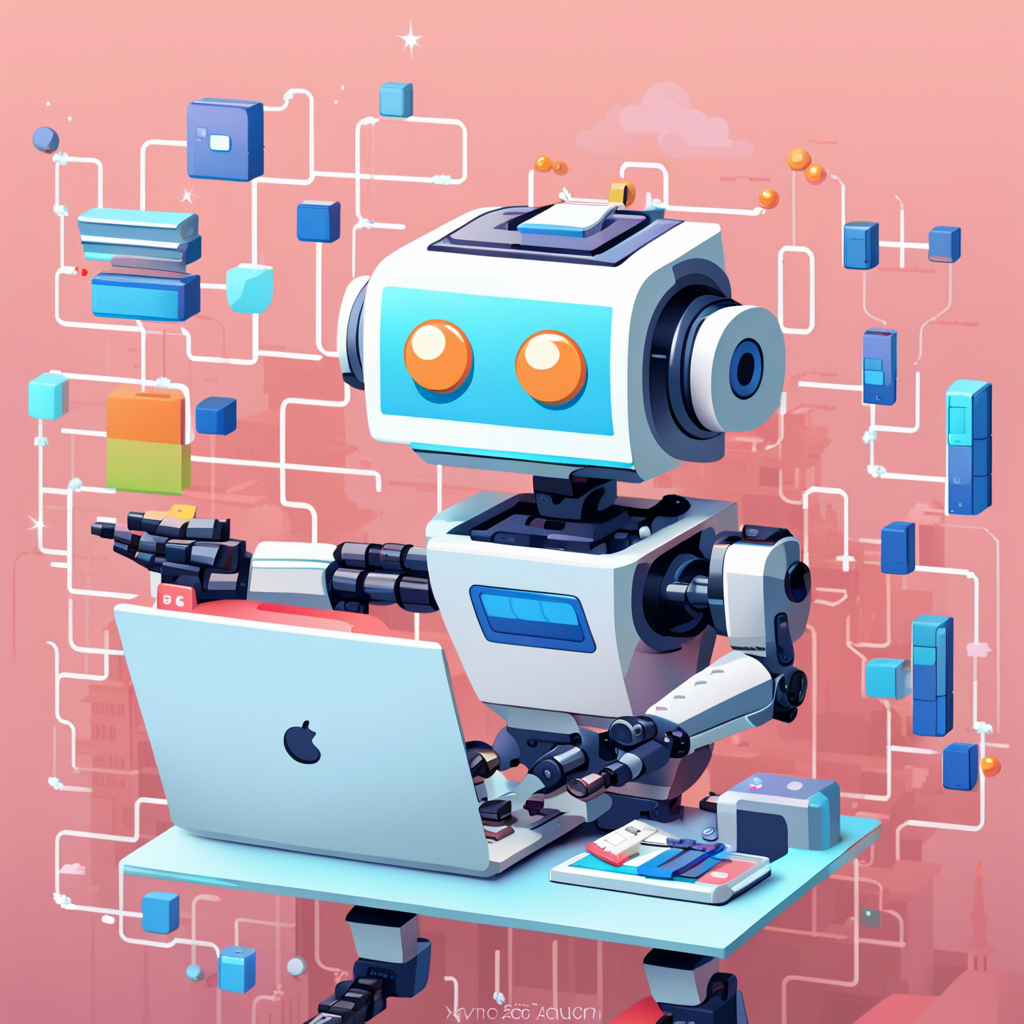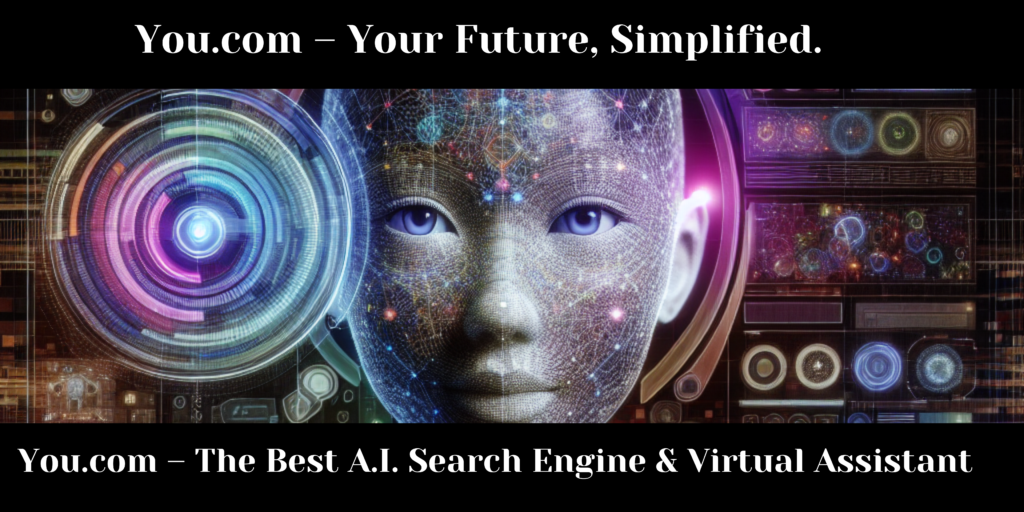The digital marketing landscape is constantly evolving, with artificial intelligence (AI) standing at the forefront of this transformation. Affiliate marketers, who once relied solely on their instincts and traditional strategies. Are now harnessing the power of AI technologies to catapult their campaigns into a new era of efficiency and personalization. In this post, we will delve into various AI technologies revolutionizing digital marketing and how understanding these innovations can reshape the journey of an affiliate marketer.
Machine Learning (ML) At the core of AI lies Machine Learning, a subset of AI that provides systems the ability to automatically learn and improve from experience without being explicitly programmed. In digital marketing, ML algorithms analyze large datasets to identify patterns and make decisions with minimal human intervention. This technology enables affiliate marketers to optimize their campaigns by predicting trends, automating bid adjustments, and providing personalized content to the target audience.
For example, ML can predict which products a customer is more likely to purchase based on their browsing history and present targeted affiliate links or ads, thereby increasing the likelihood of conversion.
Natural Language Processing (NLP) Natural Language Processing is another AI facet that allows machines to understand and interpret human language. In digital marketing, NLP is used to analyze customer feedback, social media conversations, and search queries to gain insights into consumer behaviour and preferences.
Affiliate marketers can leverage NLP to tailor their content strategy, ensuring that their promotional materials resonate with the audience’s needs and language. Tools like chatbots, powered by NLP, can also engage with customers in real-time, providing instant support and nudging them towards affiliate products that meet their needs.
Predictive Analytics Predictive Analytics employs statistical algorithms and machine learning techniques to identify the likelihood of future outcomes based on historical data. It’s a game-changer for affiliate marketers as it can forecast sales trends, customer lifetime value, and the effectiveness of marketing channels.
By understanding these predictions, affiliate marketers can allocate their budgets more efficiently, focus on the most profitable products, and preemptively adjust their strategies to align with anticipated market shifts.
Sentiment Analysis Affiliate marketers can benefit from sentiment analysis, a form of NLP that identifies and categorizes opinions expressed in text, especially to determine whether the audience’s attitude towards a product or brand is positive, negative, or neutral. This insight is invaluable for shaping marketing strategies and improving product recommendations.
AI-Driven Content Creation AI-driven content creation tools can generate articles, product descriptions, and even video content, saving marketers valuable time and resources. For affiliate marketers, this means being able to produce high-quality, SEO-friendly content at scale, which is crucial for driving traffic and improving search engine rankings.
Understanding AI’s Impact on Affiliate Marketing For affiliate marketers, grasping the intricacies of these AI technologies is not just a matter of staying current; it’s about survival and success in a crowded digital marketplace. Those who understand and apply AI will benefit from:
- Enhanced decision-making with data-driven insights.
- Personalized marketing campaigns that resonate with individual consumer preferences.
- Improved efficiency through automation of repetitive tasks.
- Better allocation of resources by predicting the most effective marketing strategies.
- Greater scalability in content creation and campaign management.
- Real-time customer engagement and improved customer service.
In the ever-evolving landscape of digital marketing, the fusion of artificial intelligence (AI) is far more than just a fleeting trend—it’s a seismic paradigm shift. Those astute enough to delve into and embrace the AI realm find themselves propelled toward a distinct advantage. Imagine possessing the prowess to craft marketing campaigns that not only resonate but truly connect with your audience on a profound level. This isn’t just a vision of tomorrow; it’s the reality we inhabit today. As an affiliate marketer, your journey is on the brink of transformation. By immersing yourself in the AI ecosystem, you equip yourself with the arsenal needed to orchestrate campaigns that transcend the ordinary, delivering unparalleled results. The future beckons, and it is indisputably AI-driven. Dare to seize it, and witness your affiliate marketing voyage soar to unprecedented heights, unfettered by convention or limitation.


This was a thought-provoking read! As a digital marketer exploring ways to stay ahead in an ever-evolving landscape, I truly appreciate how you highlighted the growing role of AI in affiliate marketing. The possibilities—from content creation to consumer behavior analysis—are both exciting and a little overwhelming!
I’m curious, though—have you personally tested any specific AI tools for optimizing affiliate content or enhancing customer engagement? And how do you see AI impacting trust and authenticity in affiliate marketing, especially with the risk of over-automation?
Thanks for shedding light on this timely topic. It definitely gave me more to think about as I consider integrating AI into my strategies.
Hi Alice,
That’s fantastic to hear you found the read thought-provoking and relevant to your work as a digital marketer! It’s true, the integration of AI into affiliate marketing presents a landscape of incredible opportunities, and it’s completely understandable to feel a mix of excitement and a touch of overwhelm.
However, if you’re curious about an AI that I find particularly useful for various tasks, I’m quite fond of You.com. It’s an AI-powered search engine that goes beyond traditional search by offering a more conversational and personalized experience. For tasks relevant to digital marketing, such as researching trends, generating content ideas, or summarizing complex topics, You.com‘s AI capabilities can be quite beneficial. It aims to provide direct answers and a more tailored browsing experience, which can be a real time-saver for marketers looking for quick insights and content inspiration.
Now, concerning the impact of AI on trust and authenticity in affiliate marketing, especially with the risk of over-automation, that’s a critical point. I see it as a dual-edged sword:
Potential for Enhanced Trust: AI can actually build trust by enabling hyper-personalization that genuinely meets consumer needs. By analyzing data to understand preferences, AI can help affiliate marketers recommend products and services that are truly relevant and valuable to individual consumers. This precision can lead to higher satisfaction and, consequently, greater trust. AI can also be used to identify and flag misleading or inauthentic content, helping to maintain a cleaner and more trustworthy marketing ecosystem.
Risk to Authenticity: The risk of over-automation primarily lies in losing the “human touch” and genuine connection. If AI-generated content becomes indistinguishable or lacks originality, consumers might feel they’re interacting with a machine rather than a credible source. Over-reliance on automation without human oversight could lead to generic, repetitive content that erodes trust. The key here is balance: using AI to augment human creativity and strategic thinking, rather than completely replacing it. Maintaining transparency about AI’s role and ensuring that the core message and value proposition remain authentic will be crucial.
Ultimately, the successful integration of AI in affiliate marketing will hinge on using these powerful tools responsibly and ethically. The goal should be to enhance the value offered to consumers, streamline operations, and ultimately build stronger, more authentic relationships, not to simply automate for the sake of it.
Thanks again for your insightful questions – they really hit on some of the most important considerations as we navigate the future of digital marketing with AI!
I’ve been reading a book on AI, so some of these terms ae familiar to me. I think you do a good job of describing them. I liked the quote callout and the list of benefits from using AI. The infographic is nice and eye-catching, but I clicked on the infographic and got an error about not finding the page linked. Fix that and its good.
The AI-driven personalization strategies you outline—like dynamic commission optimization—show how much the game has evolved beyond static links. I was very much interested in the breakdown of predictive analytics for audience segmentation. I found it to be actionable.
The ethical boundaries section is crucial. Have you found certain AI tools (like ChatGPT for content) more accepted by affiliates than others? The transparency discussion around disclosing AI use resonates as regulations tighten.
Most impressive is the “AI as collaborator, not replacement” mindset. That case study where human-AI hybrid strategies outperformed pure automation says it all.
This is a fantastic overview of how AI is reshaping affiliate marketing! I’m particularly interested in the practical applications of NLP for sentiment analysis. Could you elaborate on specific tools or platforms that affiliate marketers can readily use to implement sentiment analysis on product reviews or social media mentions? Also, with the rise of AI-driven content creation, how do you see the balance between automated content and authentic, human-created content evolving? Ensuring genuine connection with the audience seems crucial, and I’m curious about strategies to maintain that balance while leveraging AI for efficiency. Thanks for sharing these valuable insights!
Hi Jannette,
Thank you for your insightful comment and great questions! Let me address your points one by one.
Regarding practical applications of NLP for sentiment analysis, there are several powerful AI platforms that affiliate marketers can leverage:
MonkeyLearn offers pre-trained sentiment analysis models that can be easily integrated into your workflow to analyze product reviews or social media mentions. It provides a user-friendly interface for classifying text as positive, negative, or neutral.
Sprout Social, a popular social media management tool, has built-in sentiment analysis capabilities powered by OpenAI. It allows you to conduct textual analysis on up to 10 years’ worth of social media engagement data to gauge audience sentiment.
Chatbot platforms like LiveChat and MobileMonkey use NLP to understand customer queries and provide relevant, empathetic responses. By analyzing the sentiment of these interactions, you can gain valuable insights into how your audience perceives your promoted products.
In terms of balancing AI-generated content with authentic, human-created content, it’s crucial to use AI as an assistant rather than a replacement. While tools like Anyword and Frase can help generate SEO-optimized content ideas and outlines, the final content should be refined by human writers to ensure it aligns with your brand voice and provides genuine value to readers.
One effective approach is to use AI for data-driven content planning and optimization, while relying on human creativity for crafting engaging narratives and building emotional connections. For example, you could use AI to identify trending topics or analyze competitor content, but have your team create original, in-depth articles that showcase your unique perspective
Additionally, consider using AI to personalize your content distribution and promotion. Platforms like Phonexa and AdCreative can help you create targeted ad campaigns and email sequences that resonate with specific audience segments, increasing the likelihood of conversions without compromising authenticity.
Ultimately, the key is to find the right balance between leveraging AI’s efficiency and maintaining a human touch in your affiliate marketing efforts. By using AI strategically to complement your team’s skills, you can create a powerful synergy that drives better results while fostering genuine connections with your audience
Eric